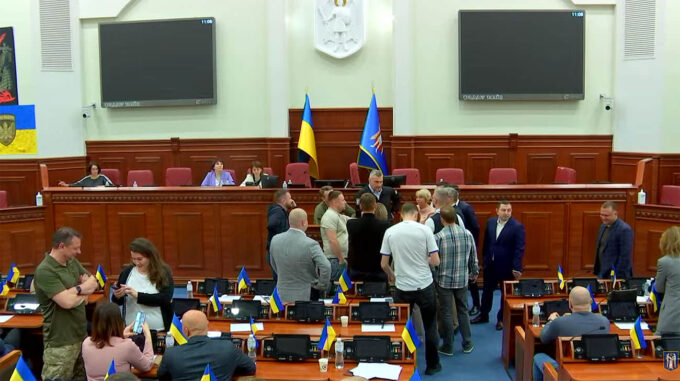Kyiv City Council was unable to convene for the scheduled meeting due to a lack of quorum, causing outrage and dissatisfaction from Mayor Vitali Klitschko

The meeting, planned for the morning of May 29, was scheduled to take place at that time but became impossible to hold because of low attendance by deputies, which triggered a series of public and political comments. From the very beginning, at 10 a.m., it was known that only 46 deputies were present in the hall, although 68 people registered in the lobby. Kyiv's mayor, acting as the chairperson, acknowledged this situation as unfair and called on colleagues to return to the hall, insert their voting cards, and begin work, hinting at the need to follow procedures and establish a quorum. However, even after an hour, with 52 deputies gathered in the hall, most of them remained passive, and the actual number of present deputies still did not reach the minimum required for the legitimacy of the meeting. Commenting on the situation, Klitschko stated that many deputies registered in the lobby are hesitant or consciously unwilling to participate in the council's work. He accused ongoing pressure and obstacles from certain forces seeking to discredit or paralyze the activity of the Kyiv City Council. Specifically, he reported that some deputies are being "intimidated" with criminal cases, subjected to unfounded searches and interrogations, while others already serving in the military are deliberately not released to attend sessions, thereby undermining the ability to form a quorum. The mayor did not specify who exactly was behind these actions but emphasized that attempts to destabilize the council's work and prevent the adoption of important city decisions are ongoing. He noted that such barriers not only persist but are intensifying. However, he did not provide more detailed information about specific individuals obstructing deputies from being present. He only underscored that these actions are manifestations of pressure and political fog that hinder effective municipal governance. It is expected that this session of the Kyiv City Council was planned to approve important decisions for the capital. These included adjustments to the economic and social development program, the city budget, financing construction and installation of protective structures, preparations for the autumn-winter season, and the new school year. Equally significant were issues concerning the financing of transport infrastructure development, including the continuation of the Vynohradar metro construction. The mayor proposed postponing the next Kyiv City Council session to June 10. However, this matter still needs to be coordinated with faction leaders and the deputies' corps. According to regulations, for a session to be recognized as valid, more than half of the entire council's 120 deputies must be present. Deputies' participation is confirmed through an electronic voting system that records their personal presence and activity. Thus, the situation in Kyiv City Council indicates difficulties in the functioning of the local government, intertwined with political and institutional conflicts. The lack of quorum and signs of pressure from certain forces allow for the possibility of suspending key decisions, which could negatively impact the city's provision of services and development. The further steps remain unclear, but it is evident that the problem is systemic and requires intervention to restore the rule of law and prevent political games that threaten the normal operation of the local authorities and their ability to effectively manage Kyiv.

